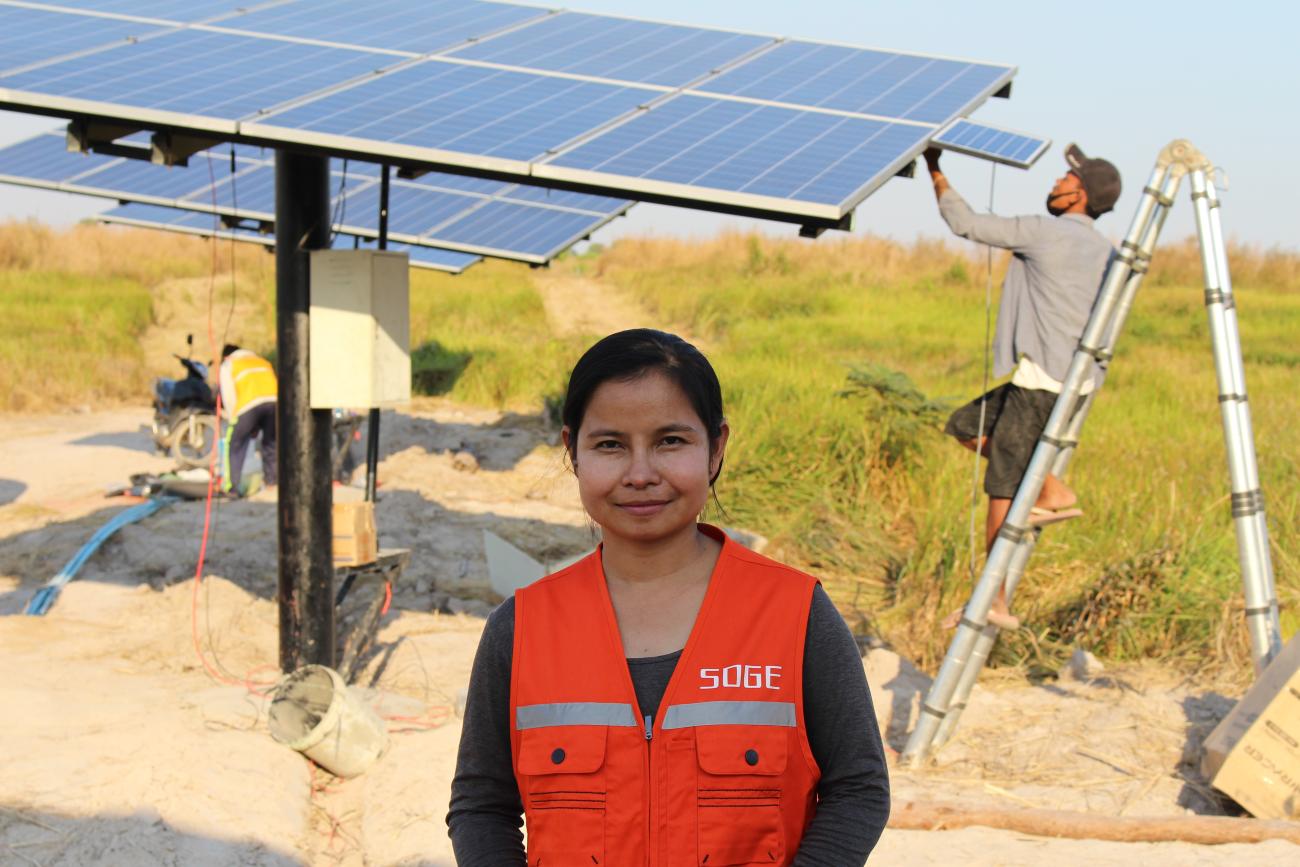In 2004, Thida started working for a private solar company. She gradually became very interested in the field and fell in love with her work. “I saw the benefits that solar energy can offer; help local people in saving time and budget and having electricity for their children,” Thida said.
Thida ran the Renewable Energy Development Association from 2008 until 2013. The association was converted into a company called Solar Green Energy Cambodia (SOGE). This is a home-based manufacturer of solar systems. Buyers can purchase a system on credit if they cannot cover the full amount of upfront costs, while rental contracts are also available. Thida is very ambitious with her business. “We want to combine renewable energy with modern technology to support the agriculture sector in Cambodia.”
Thida’s company focuses on client satisfaction and after-sales service. The key piece of advice she has for other women is that “…. doing business with honesty and responsibility (good service after sales) made our company successful to date”.
Behind Thida’s success is a lot of hardship, as she had very little finance in the beginning. “I had little money when I started this business with my husband,” she said. “Our approach started off with just selling our ideas to customers and if they ordered, we had to borrow money with high-interest rates in order to start developing the products for our clients.” There are many other barriers that hinder Thida and other women from participating and working in the green industry.
“I believe that more women are interested in this renewable energy sector just like myself, but they have limited knowledge and interest in doing proper research on it,” said Thida.
Due to COVID-19, her company’s sales have dropped about 70 per cent, but this has not demotivated her. During this time, Thida has been working hard trying to adjust her company’s internal management.
“I see this time as an opportunity. I take this opportunity to provide more training to my employees while sales are down. I strengthened our R&D activities and developed and tested new products.”
There are currently increasing opportunities in this sector and in the green industry. New technology and greening the environment are key business concepts. Thida has a vision for women and the green industry in Cambodia. “I want to see more women engaged and represented in technology and green industry. I want to raise more awareness about ecological issues in Cambodia, to help other people engage in more sustainable behaviour, and increase knowledge and R&D together in renewable energy,” said Thida.
Although solar energy systems have been available in Cambodia for some time, people are reluctant to trust them.
“I want women to think that green industry is not just the responsibility of men, but it is for everyone.”
Thida said she used to experience limited exposure, networking and advice from others. But these days there are more opportunities to support women who want to take part in the green industry. “All we need is commitment, responsibility and honesty.”
Thida requested the government and donors to continue supporting women’s empowerment in the green industry, creating a more enabling environment and opportunities for women.
Thida joined the UN programme, ‘Economic Empowerment for Women in Green Industry’. Through this programme, she received a series of training on gender mainstreaming in green industries.






